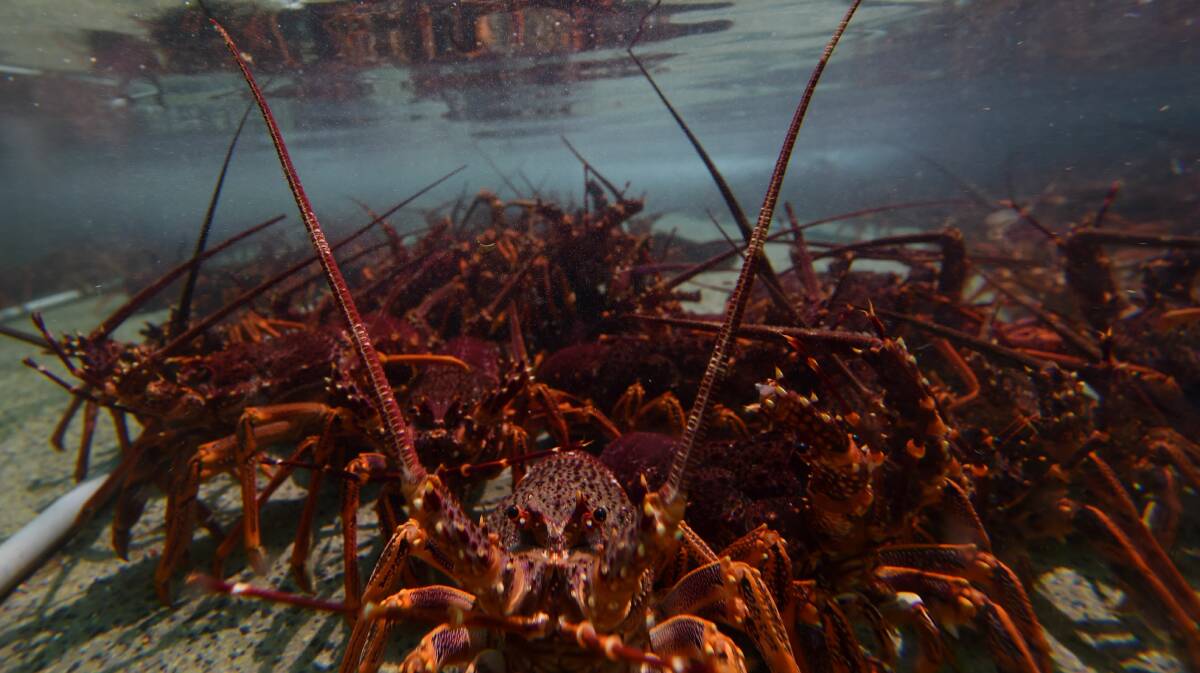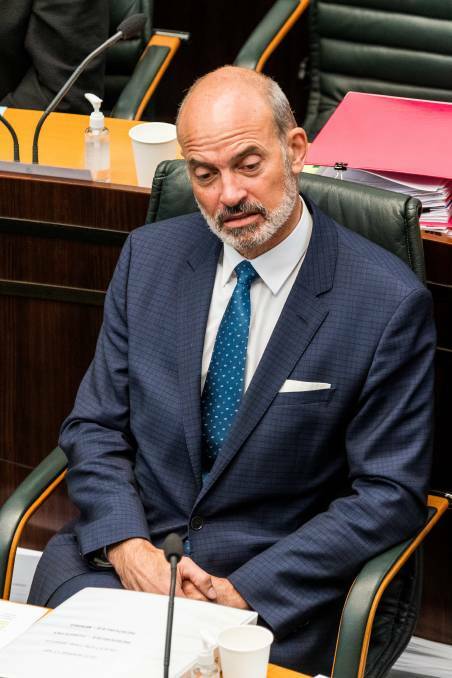
An unchanged catch limit for rock lobster season has concerned recreational anglers, who believe the government may not meet stock rebuilding targets under the status quo conditions.
Subscribe now for unlimited access.
$0/
(min cost $0)
or signup to continue reading
Primary Industries Minister Guy Barnett announced that the total allowable catch limits for the 2021-2022 rock lobster fishery season would remain unchanged at 1220.70 tonnes on Tuesday.
The total allowable recreational catch remains at 170 tonnes.
IN OTHER NEWS:
He said the government considered the limits in consultation with industry body groups, including the Tasmanian Seafood Industry Council, and the Tasmanian Rock Lobster Fishermen's Association. However, the body representing recreational fishers has raised concerns stock rebuilding, particularly in the East Coast Stock Rebuilding Zone will not be met.
"Our view has always been that the number one priority should be returning the rock lobster fishery to a sustainable level for the long term," TARFish chief executive Jane Gallichan said.
"As the peak body for recreational fishers, we recommended a 1 per cent a reduction in the TAC to meet the stock rebuilding targets both state-wide and in the ECSRZ with confidence."
Ms Gallichan said maintaining the total allowable catch limit at current levels meant stock rebuilding in the East Coast zone might not reach the target of 20 per cent until 2025.
This is two years later than initially planned.
The rock lobster industry faced a tough season in 2020 after the COVID-19 pandemic led to the Chinese government advising its citizens not to travel or visit public places to stop the spread of a deadly virus outbreak.
Because of that decision, restaurants began cancelling their orders, and Tasmanian rock lobsters were locked out of China. A flood of the product then entered the Tasmanian market, which was for lovers of the delicacy a boon, as it came right before Christmas.
However, producers required assistance from the Tasmanian Government to support the loss of income.
Mr Barnett said the total allowable catch is set each year following scientific assessment of the stocks by the Institute of Marine and Antarctic Studies, along with industry consultation.

"Our rock lobster fishery is important to our way of life and our economy and we have the capacity to adjust the way we manage it to adapt to changing conditions when needed," he said.
Ms Gallichan said the total allowable catch limit was not the only way forward.
"TARFish wrote to the government in December recommending that additional measures to support stock rebuilding be considered including increasing the translocation program for the ECSRZ and we invite the Minister to support that proposal and fund an increase to the translocation program."
Mr Barnett said the government continued to monitor stock levels on the East Coast through the 10-year stock rebuilding strategy.
"The department has begun discussions with advisory committees and peak bodies around future strategies for the area," he said.


